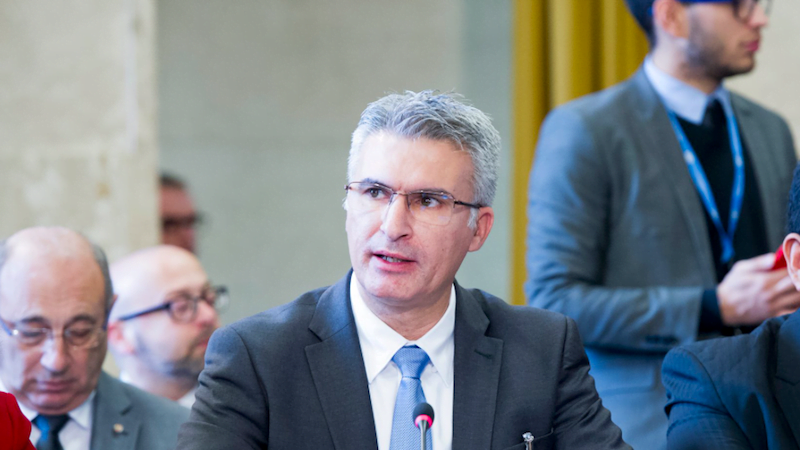Malta signed a UN agreement that sets in action a plan “to prevent suffering and chaos” for global migration, despite foreign affairs minister Carmelo Abela’s reassurances to the contrary.
Taking to Facebook, Abela said “there will be no signature” in reply to messages urging him to “man up” and refuse to sign the pact, which according to one comment would make Malta American-Hungarian billionaire George Soros’ “puppet.”

Foreign affairs minister Carmelo Abela said he would not sign the agreement on Facebook
However, national broadcaster TVM reported that “Malta is among 164 countries that have signed what is being termed as a Global Pact for Ordered and Regular Immigration.”
Despite resistance from a number of other countries, the Global Compact for Safe, Orderly and Regular Migration (GCM) was agreed upon on Monday at an intergovernmental conference in Marrakech, Morocco.
The non-binding agreement aims to better manage migration at local, national, regional and global levels, including reducing the risks and vulnerabilities the migrants or refugees face at different stages of their journey.
The pact had been approved in July by all 193 UN member nations except the US, which backed out last year.
In addition, Australia, Austria, Latvia, Czech Republic, Hungary, Chile, Dominican Republic, Poland and Slovakia refused to attend the summit and sign the pact.
Meanwhile, Bulgaria, Estonia, Italy, Israel, Slovenia and Switzerland are still undecided on whether to agree to the new pact.
German Chancellor Angela Merkel said migration is a natural phenomenon which “happens all the time all over the world. If it happens legally, it’s a good thing.”
According to the International Organisation for Migration (IOM), in 2018 alone, more than 3,300 people have “died or gone missing in the process of migration towards an international destination.”
There were 258 million international migrants in the world last year, increasing almost 50% since 2000.
The UN said the number of migrants, representing 3.4% of the world’s population, is increasing faster than the global population, driven by economic prosperity, inequality, violence, conflict and climate change.
Around 80% of the world’s migrants move between countries in a safe and orderly fashion. But more than 60,000 people have died on the move since the year 2000, according to the UN.
In his opening remarks on Monday, UN secretary-general Antonio Guterres said “this moment is the inspiring product of dedicated and painstaking efforts.”
He added that “migration has always been with us. But in a world where it is ever more inevitable and necessary, it should be well managed and safe, not irregular and dangerous.
“National policies are far more likely to succeed with international cooperation.”












